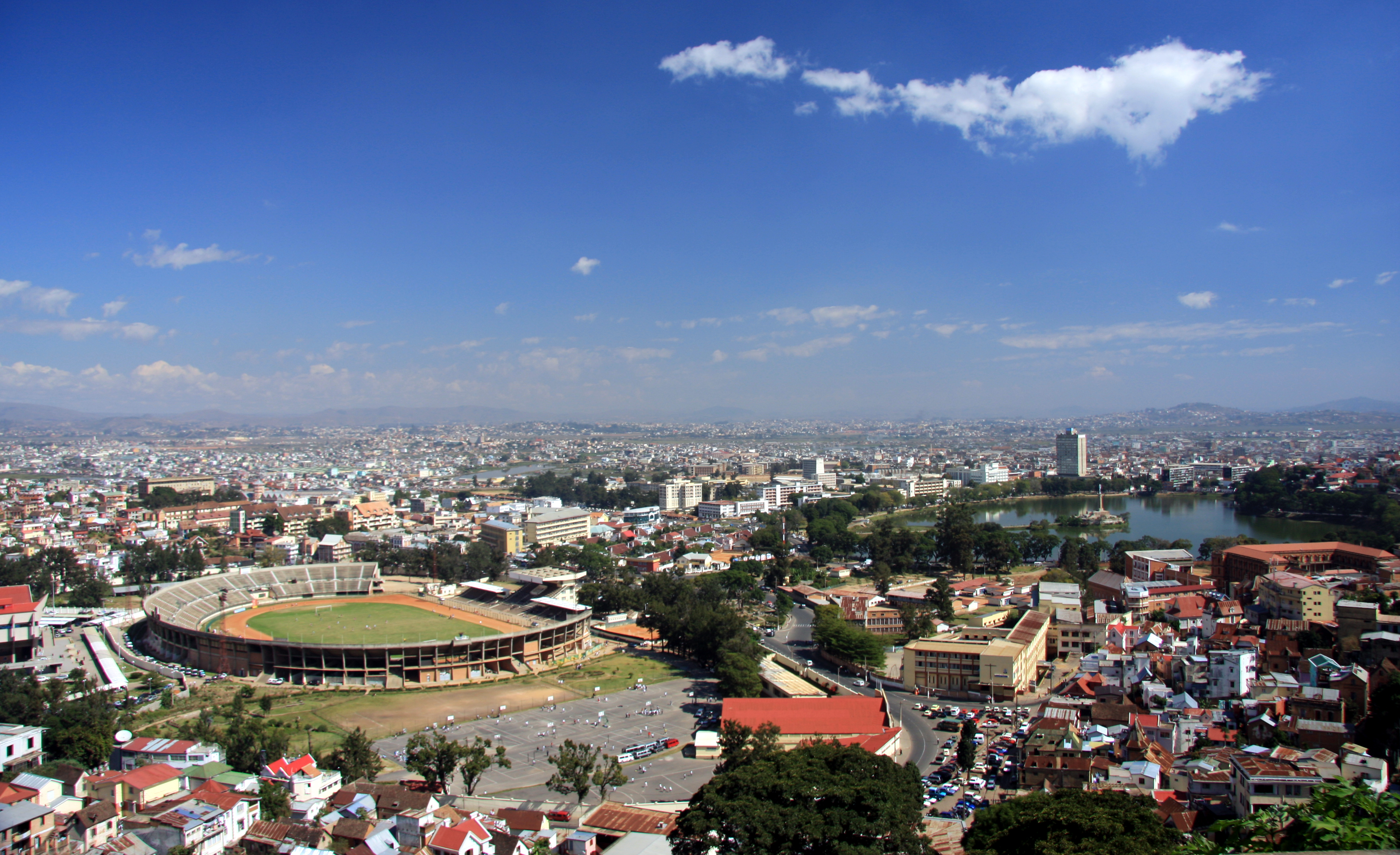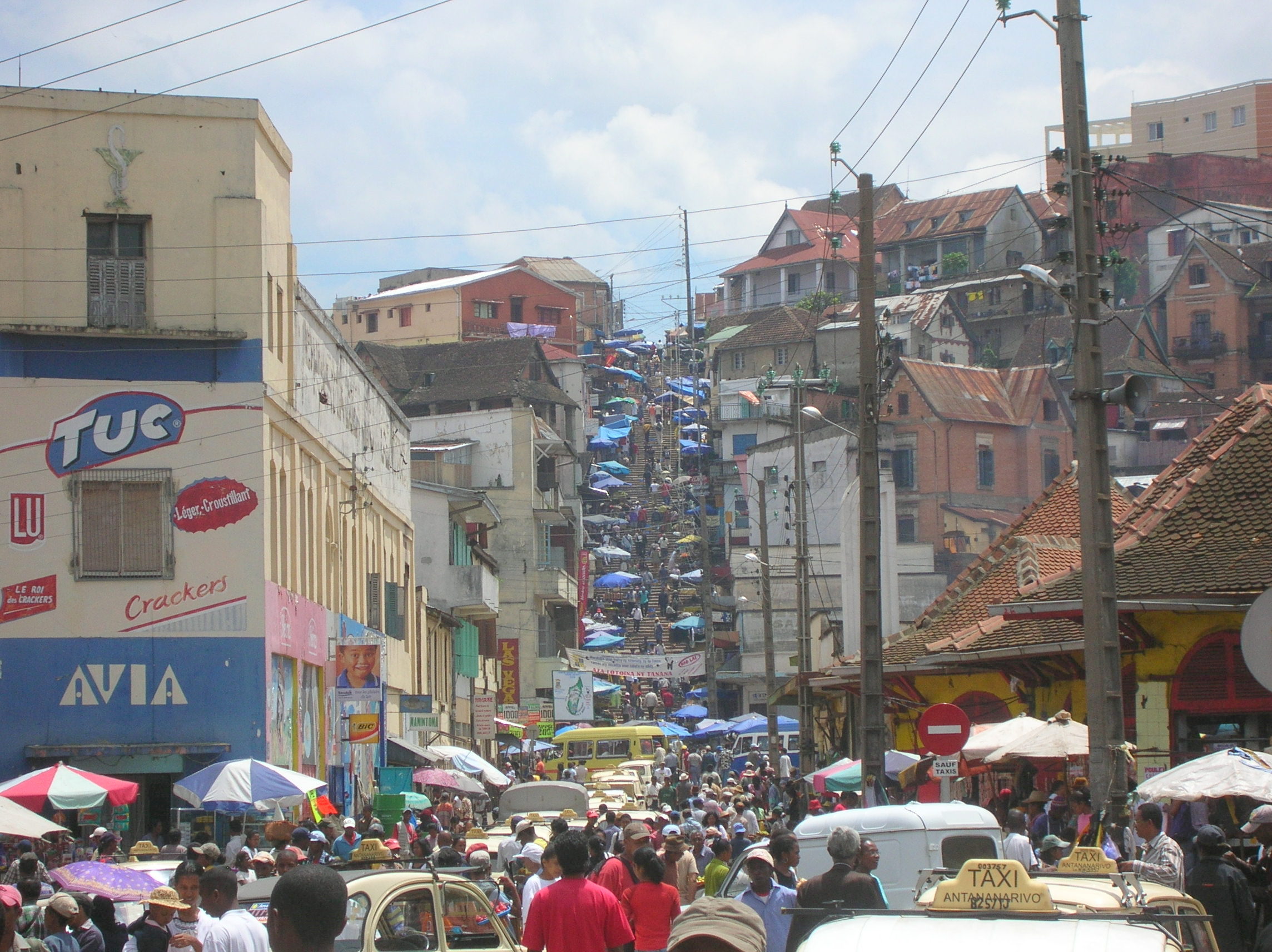Return to the search form Return to your search results
SIT Madagascar Traditional Medicine & Healthcare Systems
Fast Facts
Sessions Offered:
Summer
Location:
Antananarivo, Madagascar
Credit:
Transfer
Program Features
Affiliated Program
Eligibility:
- 2.5 GPA
- Good academic and disciplinary standing
Application Due:
3/4

The SIT Experience
- Rigorous academic programs through a field-based, experiential approach
- Undergraduate research through an Independent Study Project
- Cultural immersion through fieldwork, language classes, and urban and rural homestays with local families
- A small group of students in each program, supported by SIT faculty and staff, homestay families, in-country experts, and community members
- Access to SIT's extensive local resources and networks
- A commitment to reciprocity as the foundation of our educational philosophy
Academic Program
Learn about healthcare treatment, diagnosis, access, education, and training in urban and rural Madagascar. Through discussions with leading academics and allopathic doctors, explore alternative and allopathic healthcare practices in Madagascar and around the globe.
Discover how culture, economics, politics, and geography influence Malagasy approaches to healthcare. Through lectures, educational excursions, and cultural interaction, examine topics including Malagasy cultural assumptions and practices, ethical issues in healthcare delivery, and postcolonial history and contemporary Malagasy politics as applied to healthcare policy and delivery.
Enhance your French and learn Malagasy. There is no language prerequisite for this program. All students learn Malagasy. If you have a background in French, you will have many opportunities to apply those language skills.
For more information, see SIT's webpage.
Program Structure

Interdisciplinary Seminars
Thematic seminars merge student experience with academic theory to examine critical issues from multiple perspectives. Students learn from SIT faculty as well as guest lecturers from local universities, research institutes, nongovernmental organizations (NGOs), and community and professional associations. Field-based activities and assignments complement readings, discussions, and research papers, allowing students to engage in a variety of study methods.
Intensive Language Study
Programs typically offer language study at the intermediate and advanced levels and/or beginning instruction in a less commonly taught language spoken by the local community. Language courses incorporate formal classroom instruction, discussion, and field exercises designed to enhance student engagement while improving oral and written competence. Select programs are taught entirely or partly in the target language.
Program Dates
This program is offered during the summer. Dates can be found on the IES Cape Town Health Studies webpage
For more information
Steps to Studying Abroad
- Before initiating an application with SIT, students must complete a Discover Study Abroad session at the University of Iowa.
- After completing the Discover Abroad session, students will receive an email with their study abroad advisor assignment.
- Once assigned, students must meet with their study abroad advisor to receive program application instructions.
Study Abroad
1111 University Capitol Centre
Iowa City, IA 52242
Phone: 319-335-0353
Email: study-abroad@uiowa.edu
Antananarivo

Madagascar’s capital is a beautiful city built on hills, with distinct neighborhoods, bustling open-air markets, intriguing paths, and alluring staircases that wind their way among the hills. Commonly referred to as “Tana,” the city boasts an interesting mix of 19th-century Malagasy and more recent European influences evident in its layout, architecture, economy, attitude, and atmosphere.
This program also includes time in provincial areas, allowing you to see different facets of Malagasy society and culture. In the rural town of Andasibe, you will engage with local residents, including traditional healers and allopathic medical doctors, at rural public hospitals. You will learn more about ethnobotany, home and folk remedies, and the extent to which health beliefs are grounded in traditional religion.Madagascar
Madagascar is a country that occupies a large island of the same name, located in the Indian Ocean off the eastern coast of Africa. It is the fourth largest island in the world.
Madagascar's long isolation from the neighboring continents has resulted in a unique mix of flora and fauna; many of which are unique and endemic to Madagascar. This has led some ecologists to refer to Madagascar as the "eighth continent". Of the 10,000 plants native to Madagascar, 90% are found nowhere else in the world. Madagascar's varied plants and animals are endangered by human activity, as one-third of it's native vegetation has disappeared since the 1970s and since the arrival of humans 2,000 years ago, Madagascar has lost more than 90% of it's original forest. Most lemurs are listed as endangered or threatened species. The eastern, or windward side of the island is home to tropical rainforests, while the western and southern sides, which lie in the rain shadow of the central highlands, are home to tropical dry forests, thorn forests, and deserts and xeric shrublands. Madagascar's dry deciduous rainforest has been preserved generally better than the eastern rainforests or the high central plateau, presumably due to historically low population densities.
US Department of State Country Information
The US Department of State provides safety and security information for every country of the world to help you assess for yourself the risks of travel. Each country information page contains a Travel Advisory, Alerts, and other important details specific to that country that could affect you.
Pay close attention to the entry and exit requirements, local laws and customs, health conditions, and other details to help decide whether traveling to any given country is right for you. Non-US citizen travelers may also wish to seek guidance from the embassy of their country of citizenship. The UI International Travel Policy for Students addresses restrictions on student travel to high-risk locations and engagement in high-risk activities abroad.
Living Arrangements

Antananarivo
Experience contemporary Malagasy perspectives and cultural values through a three-and-a-half-week homestay in Tana, Madagascar’s capital. You will be exposed to an array of urban issues and will witness the influence of globalization and other international forces, including the media, business, and capitalism, on middle-class Malagasy life. You will also learn the importance of family in Malagasy culture and witness ancestor veneration.
You will also see the deep connections urban Malagasy have to their ancestral villages and the importance of clan in Malagasy culture and how these affect society and politics in Madagascar today.
Andasibe
During 10 days in rural Andasibe, you will experience village interconnectedness and witness Malagasy society in a rural setting. You also will experience the challenges facing rural Malagasy families and communities, including access to healthcare, education, and government services. During this part of the program, you will also have the chance to engage with Malagasy peers in the Pharmacology Department during lectures; have discussions with medical doctors, traditional medicine healers, and specialists; and visit health centers and parks.
Passport
US Citizens
If you do not have a passport, it is important that you apply for one as soon as possible to ensure you receive it before the program begins. US citizens can find more information about how to apply for a passport on the US Department of State’s website.
Students with a valid passport should check the expiration date. Passports must be valid for at least 6 months AFTER the anticipated return to the US from studying abroad. If your passport is not valid for at least 6 months after your anticipated date of return to the US, you must renew your passport before applying for a visa or leaving the United States.US citizens can find more information about how to renew a passport on the US Department of State’s website.
Travel Arrangements
Students will work with their program provider to make travel arrangements to their program site. The cost of travel is not included in the course fee. UI Study Abroad will not arrange a group flight to your study abroad destination.
Do not purchase plane tickets until you have received instructions on how to do so from your program provider.
Local Transportation
Within your host city and around the country, students will utilize public transportation such as buses and trains. Excursions and general travel require a lot of walking, so bring some comfortable shoes!
Eligibility
This program is open to UI students who fulfill the following requirements:
- Minimum 2.5 cumulative GPA: Students must have at minimum a 2.5 cumulative GPA to participate in this program.
- Good academic and disciplinary standing: Students must be in good academic and disciplinary standing at the University of Iowa. Academic and disciplinary history will also be considered when determining whether a student is prepared to represent the University of Iowa as part of this program. Students who, even after being accepted into a program, are put on either academic and/or disciplinary probation for any period of time overlapping with the study abroad program dates are ineligible to study abroad. In these cases, students must forfeit their acceptance, will not be allowed to study abroad, and are wholly responsible for any and all financial expenses incurred.
Costs
Costs charged to the U-Bill
- Application fee (charged at the time of application, before financial aid/scholarships disburse)
- Course Fee- Includes program course fee, tuition, housing, meals, pre-departure advising, airport pick-up for those on the group flight, orientation, and program-organized field trip and excursions. (charged shortly before departure)
- University of Iowa Study Abroad Administrative Fee (charged shortly before departure)
- The mandatory Iowa Regents CISI Health Insurance (charged shortly before departure)
Out-of-pocket costs (not charged to U-Bill)
- Round trip airfare (paid by student directly to travel agent or airline- approx. 6-8 weeks prior to departure, before financial aid/scholarships disburse)
- Passport (paid by student prior to departure, before financial aid/scholarships disburse)
- Consular and visa fees (paid by student prior to departure, before financial aid/scholarships disburse)
- Textbooks, copyright permission fees, course packets, and other course-related materials (paid upoon arrival to your host country)
- Medical exam/immunizations (paid by student as needed prior to departure, before financial aid/scholarships disburse)
- Personal expenses and personal travel (paid by student as needed while abroad)
- Rental or purchase of required cell phone- does not include usage fees (paid as needed while abroad)
Cost Sheet
Updated cost sheet is forthcomingFinancial Aid & Scholarships
Most financial aid (scholarships, grants, and loans) is applicable to study abroad programs. Please check the Study Abroad website for information on financial aid and how it may be applied to studying abroad. You are also encouraged to speak with someone at the Office of Student Financial Aid to explore financial aid options. Scholarship opportunities exist for study abroad participants. Please explore Study Abroad’s websites for UI Study Abroad Scholarship Opportunities.
SIT offers scholarships and grants that can be found on SIT's Scholarships & Grants web page.
SIT has a matching scholarship for Pell Grant Recipients. More information can be found on SIT Pell Grant Match Award web page.
How to Apply
- Before initiating an application with SIT, students must complete a Discover Study Abroad session at the University of Iowa.
- After completing the Discover Abroad session, students will receive an email with their study abroad advisor assignment.
- Once assigned, students must meet with their study abroad advisor to receive program application instructions.
Students will need to complete a University of Iowa Study Abroad application and a SIT Program Online Application. Information on these applications will come from the study abroad advisor. Final program admissions decision is made by SIT.
Application Deadline
Application Deadline
Application deadline for Summer is March 4
Students are encouraged to review the following:
Iowa Regents CISI Health Insurance Information
Health preparation Guide for International Travel
This document is intended to help you plan for your medical needs abroad.
Please DO NOT turn this form in to UI Study Abroad.
Orientation
In order to prepare for your time abroad, you are required by the University of Iowa to complete two orientations. These may be in addition to orientations provided by your on-site provider. See below for more information.
Online Education Abroad Pre-Departure Orientation
You are required to complete the International Programs ICON course "Education Abroad Pre-Departure Orientation" prior to departure. This orientation is mandatory for all students going abroad under the auspices of the University of Iowa. It covers many practical matters about living overseas, such as health and safety, communication, money, goals, and much more. You will be enrolled in this course by International Programs and an email will be sent to you once enrolled. If you have any questions, you can email safety-abroad@uiowa.edu
Program-Specific Orientation
This orientation will be facilitated by a study abroad advisor and will cover content specific to the University of Iowa including but not limited to, billing, insurance, the Credit Approval Form (CAF), and transcripts. It could be conducted in a group setting or one-on-one depending on your type of planned activity abroad. Your study abroad advisor will send you more information about this mandatory in-person session.
SIT Pre-departure Resources
SIT will provide you with a variety of pre-departure resources to prepare you for your study abroad experience. These will include
- Flight, Passport & Visa Information
- Country Overview & Packing Guidelines
- Health Guidelines & Requirements
- Mental Health, Counseling & Wellness Tips
- Safety, Security & Health
- Recommended Readings & Resources
- SIT Study Abroad Student Handbook
